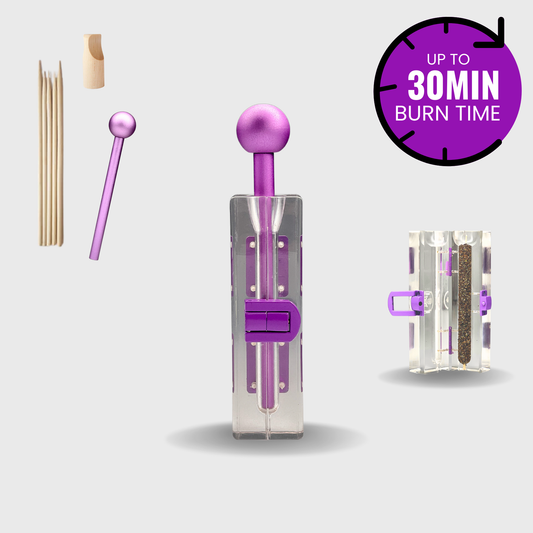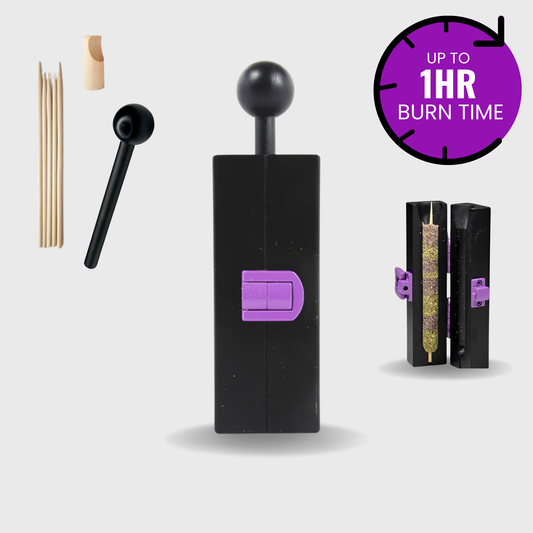The 2018 Farm Bill was intended to legalize hemp as an agricultural commodity; however, it inadvertently facilitated the growth of an unregulated market for synthetic cannabinoids such as delta-8 THC. By legalizing hemp with a delta-9 THC concentration of less than 0.3%, lawmakers unintentionally created a loophole that permits the legal sale of intoxicating compounds, even in jurisdictions where marijuana remains prohibited. This oversight has resulted in a billion-dollar industry, introduced new regulatory complexities, and initiated an ongoing discussion regarding the trajectory of cannabis laws in the United States.
The 2018 Farm Bill: Hemp Achieves Legal Status

The 2018 Farm Bill redefined hemp, establishing its legality for cultivation, production, and sale, provided it contains less than 0.3% delta-9 THC on a dry weight basis (U.S. Department of Agriculture, 2018). The primary objective was to support American farmers by expanding the industrial hemp market, encouraging hemp production for applications such as:
- Textiles: Hemp fiber presents a robust and sustainable alternative to cotton.
- Food & Supplements: Hemp seeds and oil are utilized in health-oriented products.
- CBD Products: Hemp-derived CBD had already gained popularity for wellness and therapeutic applications.
Nevertheless, this legislation did not fully consider other cannabinoids naturally present in the hemp plant—or those derivable from it. Subsequently, the most notable unintended outcome was the emergence of delta-8 THC, a mildly psychoactive compound synthesizable from hemp-derived CBD. Given that the Farm Bill only restricted delta-9 THC levels, delta-8 THC became legally permissible by default—contributing to its rapid market expansion.
The Rise of Delta-8 THC: A Legal Ambiguity

Delta-8 tetrahydrocannabinol (delta-8 THC) shares chemical similarities with delta-9 THC, the principal psychoactive constituent of marijuana. However, it occurs in hemp plants in minimal quantities, necessitating synthetic production from CBD through chemical processes.
This legal ambiguity enabled delta-8 THC products to proliferate within the market, often marketed as a “milder” alternative to traditional cannabis, purportedly offering:
- Less pronounced psychoactive effects compared to delta-9 THC.
- Fewer regulatory constraints than state-licensed cannabis products.
- Broader accessibility, even in states where recreational marijuana remains illegal.
Despite its increasing prevalence, delta-8 THC is not subjected to the same rigorous testing protocols as cannabis products in regulated legal markets. This regulatory gap has prompted concerns regarding product quality and consumer safety.
How Established Cannabis Overlooked the Delta-8 Phenomenon

The emergence of delta-8 THC came as a surprise to the established cannabis industry, which operates under substantial regulation at both state and federal levels. In contrast to licensed cannabis enterprises, hemp-based delta-8 producers are not obligated to obtain:
- Costly permits or licenses.
- Comprehensive product safety evaluations.
- Compliance with stringent tracking and regulatory mandates.
This regulatory disparity has allowed delta-8 THC businesses to offer products at lower price points and with fewer limitations, thereby undercutting the legal cannabis industry. Cannabis advocates contend that this situation compromises legalization initiatives by allowing unregulated intoxicating products to gain market dominance while legally compliant businesses face significant operational costs.
The Risks of Unregulated Cannabinoids

As delta-8 THC and similar synthetic cannabinoids exist within a legal gray area, they are not consistently subject to uniform safety standards. This situation has generated considerable concerns regarding product contamination, inconsistencies in potency, and potential risks to consumer health.
Health and Safety Concerns
Data from the FDA and CDC indicate a rise in reported adverse events associated with delta-8 THC exposure, including:
- Confusion, dizziness, and paranoia resulting from unknown dosages.
- Presence of contaminants, such as heavy metals or residual solvents from the chemical conversion process.
- Incidents of children unintentionally ingesting delta-8 edibles, necessitating emergency room visits (U.S. Food and Drug Administration, 2022).
In the absence of federal oversight, numerous delta-8 products are mislabeled, and retailers are not required to conduct independent third-party testing. Consequently, consumers are frequently unaware of the composition of the products they are using, thereby increasing the potential for harm.
State Reactions: Banning or Embracing Delta-8?
Lacking a unified federal policy on delta-8 THC, individual states have been tasked with determining whether to permit or prohibit these products. This has resulted in a diverse patchwork of regulations across the nation:
States Implementing Delta-8 THC Bans
Several states acted swiftly to ban delta-8 THC, often citing public safety considerations and the lack of regulatory frameworks. These states include:
- New York
- Colorado
- Alaska
These states already possess legalized cannabis markets, and regulators sought to maintain product consistency and safety by prohibiting unregulated alternatives (National Conference of State Legislatures, 2023).
States That Allow Delta-8 THC
Conversely, other states have embraced delta-8 THC, perceiving it as an economic opportunity. States where delta-8 remains legal include:
- Texas
- Georgia
- Florida (despite ongoing efforts to further regulate it)
Given delta-8's presence in a federal loophole, businesses in these states continue to operate without significant regulation, marketing delta-8 THC alongside other legal hemp-derived products.
Florida’s Controversy: Legal Weed vs. Unregulated Hemp

Florida presents a particularly contradictory stance on cannabis and hemp. Governor Ron DeSantis has repeatedly expressed opposition to full cannabis legalization, stating, “I don’t want this state reeking of marijuana.” However, when presented with legislation that would have restricted synthetic hemp-derived cannabinoids, he vetoed it (Miami Herald, 2023).
This means:
- Adult-use cannabis remains illegal in Florida.
- Delta-8 THC products continue to be sold statewide without rigorous oversight.
- Consumers have access to intoxicating hemp cannabinoids but not regulated marijuana.
This scenario underscores the ongoing inconsistencies within US cannabis laws—where hemp-derived products capable of inducing intoxication are often more readily accessible than legal cannabis.
What This Means for the Future of US Cannabis Legalization

The delta-8 THC loophole highlights the inconsistencies within federal cannabis policy. While some lawmakers are advocating for stricter regulations to address loopholes in the 2018 Farm Bill, others view delta-8 THC as evidence supporting broader cannabis legalization.
Consumer Impact: What Cannabis Users Should Know

For consumers navigating this confusing legal landscape, understanding the difference between regulated cannabis and unregulated synthetic cannabinoids is crucial.
Tips for Safe Consumption
- Only buy third-party lab-tested products to ensure potency and purity.
- Understand the differences between delta-8 THC, delta-9 THC, and other synthetic cannabinoids.
- Purchase from reputable vendors—avoid gas stations and unverified online dispensaries.
As US cannabis legalization evolves, staying informed is the best way to protect yourself while enjoying cannabis and hemp-derived products.
The Future Path: Federal Legalization or More Restrictions?
The 2018 Farm Bill unintentionally established an unregulated market for hemp-based THC products, revealing vulnerabilities in the US legal framework pertaining to cannabis. As inconsistencies between federal law, state legislation, and enforcement mechanisms persist, national cannabis reform appears inevitable—though the specific direction, whether toward stricter hemp regulations, full cannabis legalization, or an intermediate approach, remains to be determined.
Citations
- U.S. Department of Agriculture. (2018). 2018 Farm Bill: Hemp legalization and regulation.
- U.S. Food and Drug Administration. (2022). FDA consumer update on delta-8 THC and potential health risks.
- National Conference of State Legislatures. (2023). State regulations on delta-8 THC: Bans and restrictions.
- Miami Herald. (2023). Gov. Ron DeSantis vetoes hemp regulation bill while opposing cannabis legalization.




